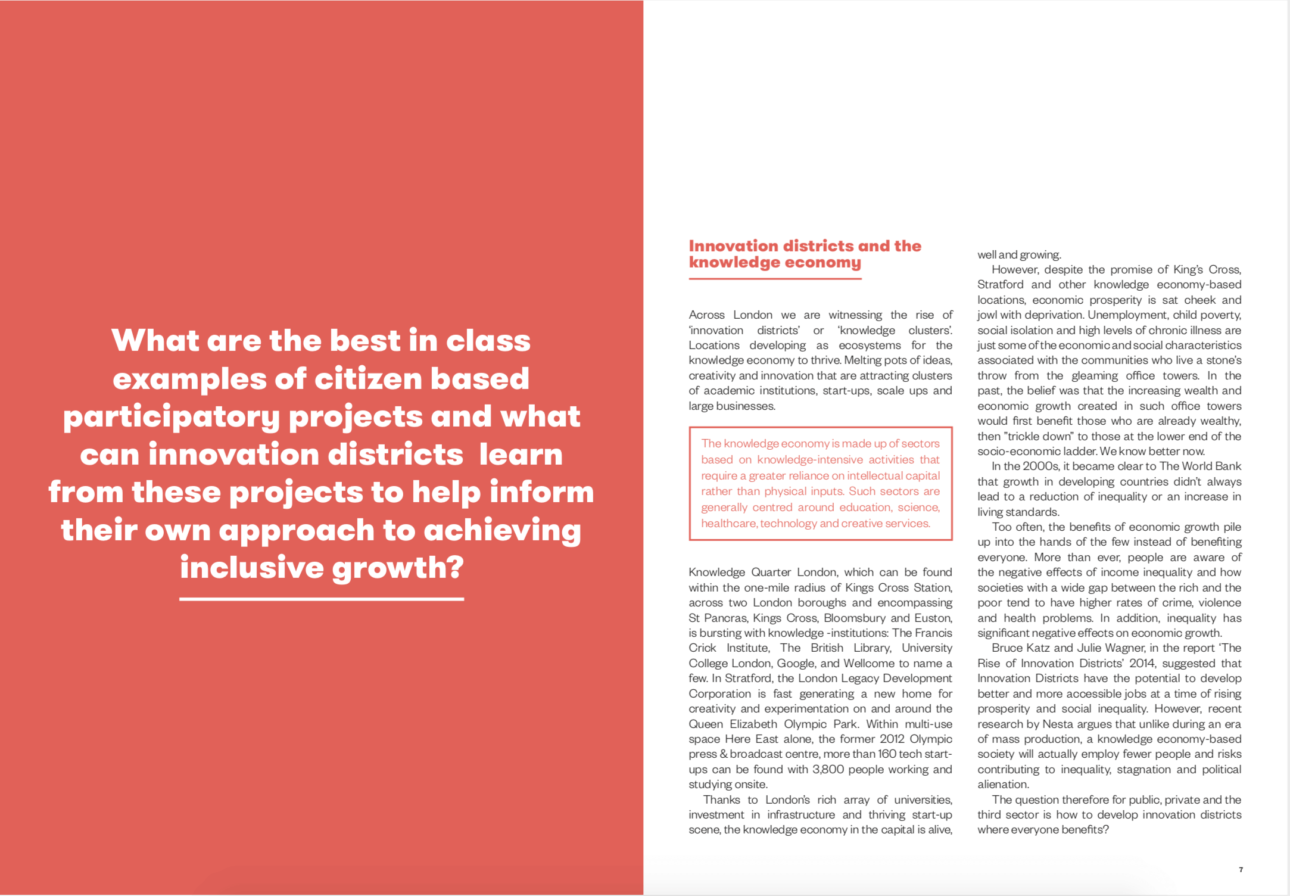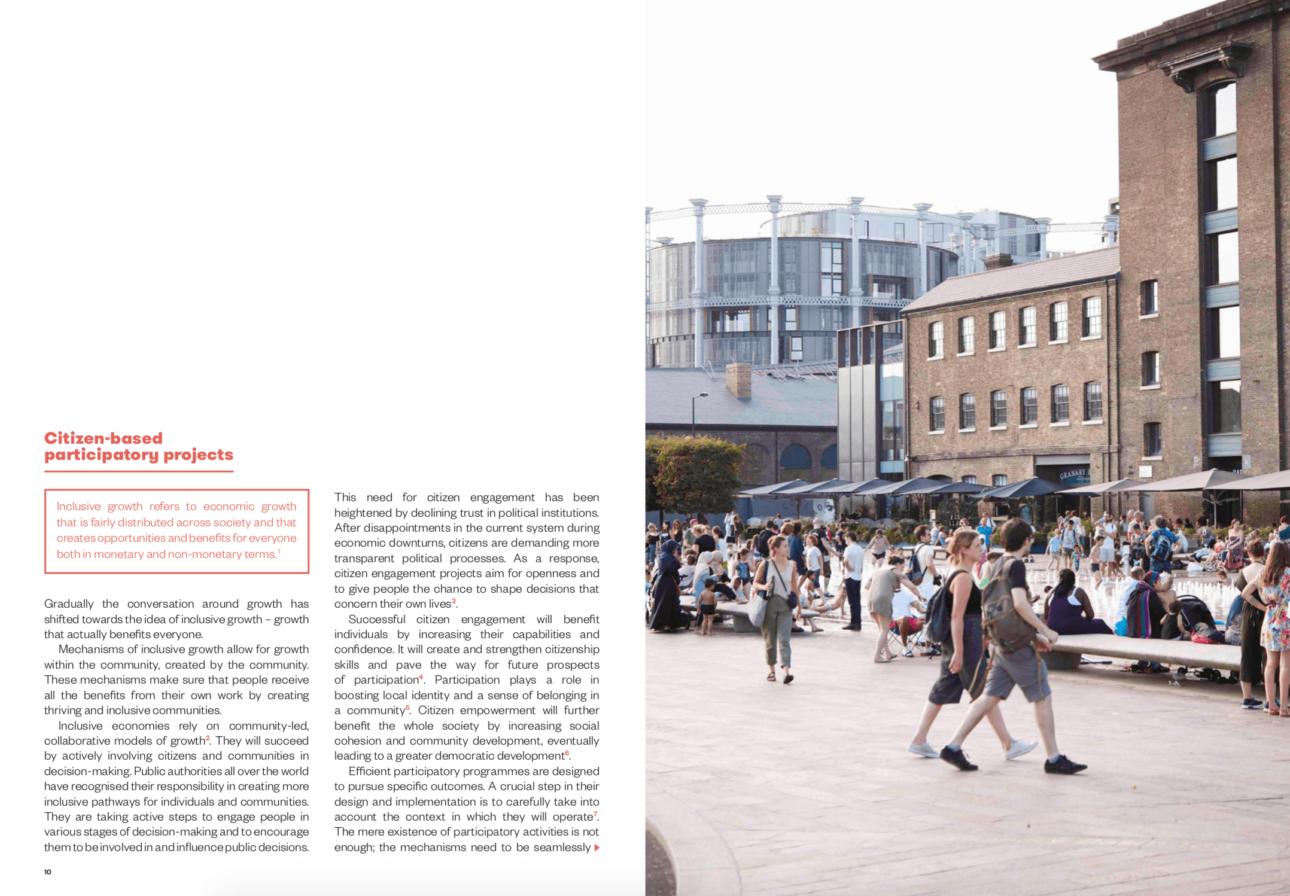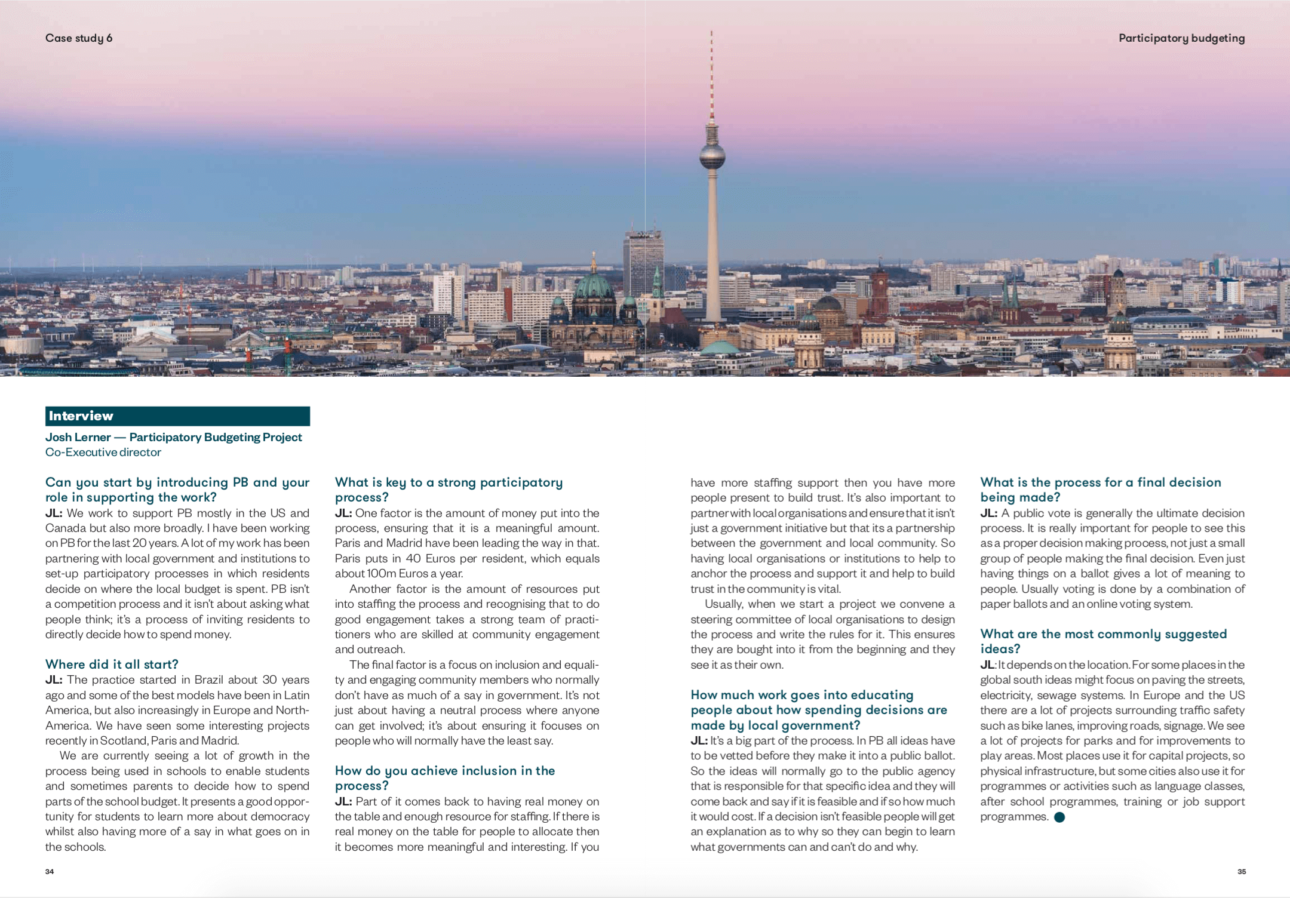What role do citizen based participatory projects have to play in an inclusive economy?
Client: London Legacy Development Corporation and The Knowledge Quarter
Date: 2019 – 2020
Services: Research
Across London we are witnessing the rise of ‘innovation districts’ or ‘knowledge clusters’. Locations developing as ecosystems for the knowledge economy to thrive. Melting pots of ideas, creativity and innovation that are attracting clusters of academic institutions, start-ups, scale ups and large businesses.
However, despite the promise of knowledge cluster locations such as King’s Cross, Stratford and White City economic prosperity is sat cheek and jowl with deprivation. Unemployment, child poverty, social isolation and high levels of chronic illness are just some of the economic and social characteristics associated with the communities who live a stone’s throw from the gleaming office towers. In the past, the belief was that the increasing wealth and economic growth created in such places would first benefit those who are already wealthy, then ”trickle down” to those at the lower end of the socio-economic ladder. We know better now.
In the 2000s, it became clear to The World Bank that growth in developing countries didn’t always lead to a reduction of inequality or an increase in living standards.
Too often, the benefits of economic growth pile up into the hands of the few instead of benefiting everyone. More than ever, people are aware of the negative effects of income inequality and how societies with a wide gap between the rich and the poor tend to have higher rates of crime, violence and health problems. In addition, inequality has significant negative effects on economic growth.
Bruce Katz and Julie Wagner, in the report ‘The Rise of Innovation Districts’ 2014, suggested that Innovation Districts have the potential to develop better and more accessible jobs at a time of rising prosperity and social inequality. However, recent research by Nesta argues that unlike during an era of mass production, a knowledge economy-based society will actually employ fewer people and risks contributing to inequality, stagnation and political alienation.
The question therefore for public, private and the third sector is how to develop innovation districts where everyone benefits?
Our research paper seeks to explore that question and looks towards citizen based participatory models as part of the answer.
To access a copy of the report email: jack@futureplacesstudio.co.uk




